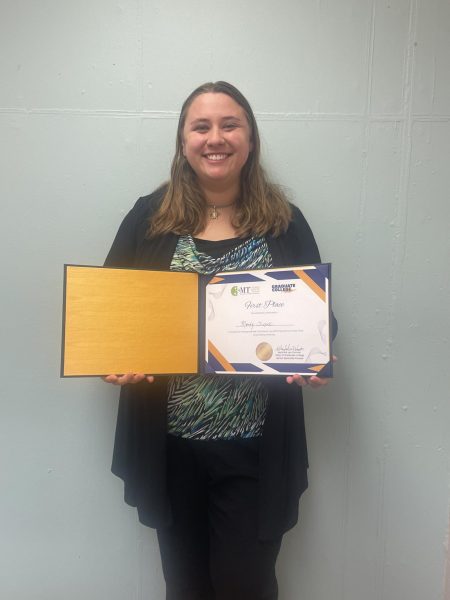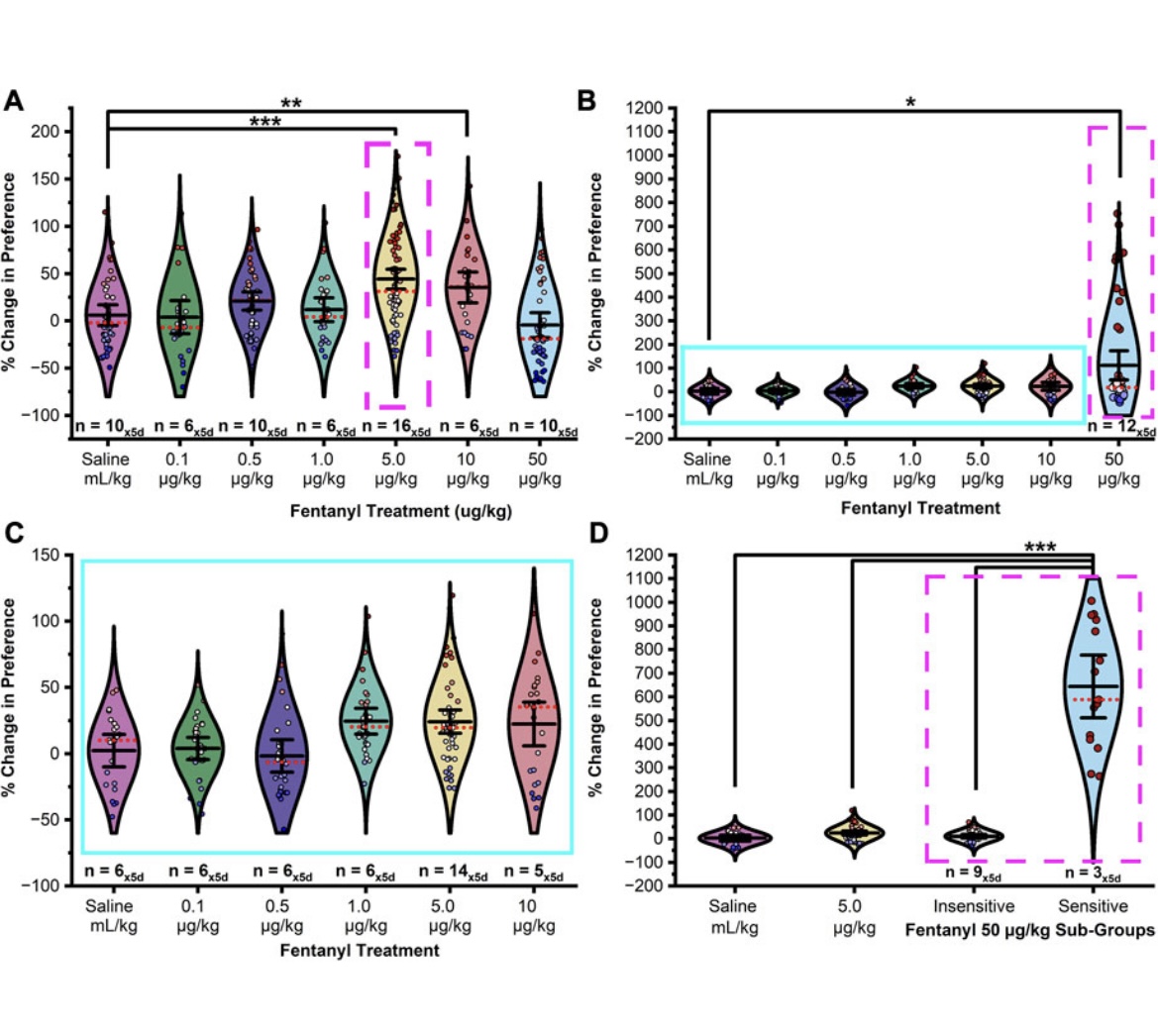On Oct. 3, Mandalynn “Mandy” Slupek watched fellow competitors stand at the podium in front of a curious crowd at the KIVA Auditorium on-campus.
Slupek and fellow researchers attended the competition to present their research and findings in an oral dissertation. The catch for her and others that presented was they had three minutes to deliver.
This competition is also known as the Three Minute Thesis that allows students, typically at the doctoral level, to showcase their research discoveries. However, they only have a strict three minutes to present their discoveries that initially were recorded in an 80,000-word dissertation.
Slupek, a sixth year Ph.D. candidate in the Biomedical Neuroscience program of the College of Arts and Sciences, researched opioid addiction and saw if N-acetyl cysteine (NAC) could counteract against opioid addiction using rats.
Her research was awarded first place and the top prize of $500.
Slupek said her research was partly based on the collaboration between Case Western Reserve University and Kent State University, as well as the research in her lab.
“So we have a collaboration with Case Western Reserve where there was a lab they’re looking at molecules that have cysteine derivative portion to them, like the one I’m using,” Slupek said. “They were looking at opioid induced respiratory depression, which is when you stop breathing because you’re overdosing on opioids. And they found that these drugs that they were using, were helping alleviate some of these symptoms.”

Slupek said that studies prior used NAC post-addiction to attempt to regulate the “addictive circuit.” However, with Slupek, she wanted to see what would happen if she gave the NAC beforehand.
“Because with opioids, we have the advantage of them being prescriptions a lot of the time with 10 and 20% of new users of illegal opioids, coming from prescriptions,” Slupek said. “So if we could… if someone knows they’re going to be exposed to an opioid and at a higher risk for developing addiction, is there something we could develop ahead of time to give either before the opioid prescription or in conjunction with it to mitigate that risk of addiction.”
Zackery Knauss, a doctoral candidate in the College of Arts & Sciences and Slupek’s classmate, said that personally, the best part of the research was the potential implications of helping people.
“It actually has a potential impact, actually, on the human condition, [which] is the problem of opioid abuse worldwide,” Knauss said. “So, from that standpoint, it could actually lead to having huge impacts on many peoples’ lives.”
There were challenges faced in this research process, for example the test subjects, Knauss said.
“The biggest limitation probably for our work is [that] it is on animals,” he said.
They conducted the research with animals because it was a preclinical test. Ultimately, the long-term goal is for this to be a clinical trial on humans, Knauss said.
Despite the limitation, the project still won the competition. When asked what contributed to the win, Slupek and Knauss both said they believe it is the importance of the topic.
“I think one thing that was to my advantage was that I do research that looks to directly impact a large number of people,” Slupek said. “So it is to my advantage that I have a topic that really speaks to a lot of people.”
Knauss said that the biggest reason it won was because of how unique and important this topic of research is.
“I think the biggest reason being is that it is so incredibly novel and how it actually functions and treats stuff as well as it is a very important line of research,” Knauss said.
As for who guided Slupek along the way, she said she had a couple different professors help her.
Slupek said her advisor, Devin Mueller, supported her. Additionally, she thanked “a great mentor” Derek Damron, a biological sciences professor who passed away in August, for the assistance and development of her research.
“Of course, Dr. Derek Damron was a huge help with this whole thing… he did all the groundwork and like, the connections for that,” she said.
Slupek said winning the three-minute thesis came as a surprise, saying that she went into it to do her best, but also hoped of placing in the top three.
“I was like, I’m gonna do my best and I want this research to be known,” Slupek said. “I was hoping to be like in the top three so that my main video of it could get featured on social media and maybe it could help somebody who saw it.”
The research Slupek conducted has allowed her to have an understanding that addiction is not the person’s fault, she said.
“One thing I always like to just mention when we talked about addiction research is that addiction really is… it’s not the person’s fault.” Slupek said. “No one’s choosing to be addicted, especially in the case of opioids where you took your prescription and now suddenly your body has a craving that you can’t control.”
Slupek said society has poor judgment of people who are addicted and that having empathy is important.
“So just encouraging empathy among people who are suffering,” Slupek said. “Always important in the healing process.”
MinJee Yoo is a reporter. Contact her at [email protected].





